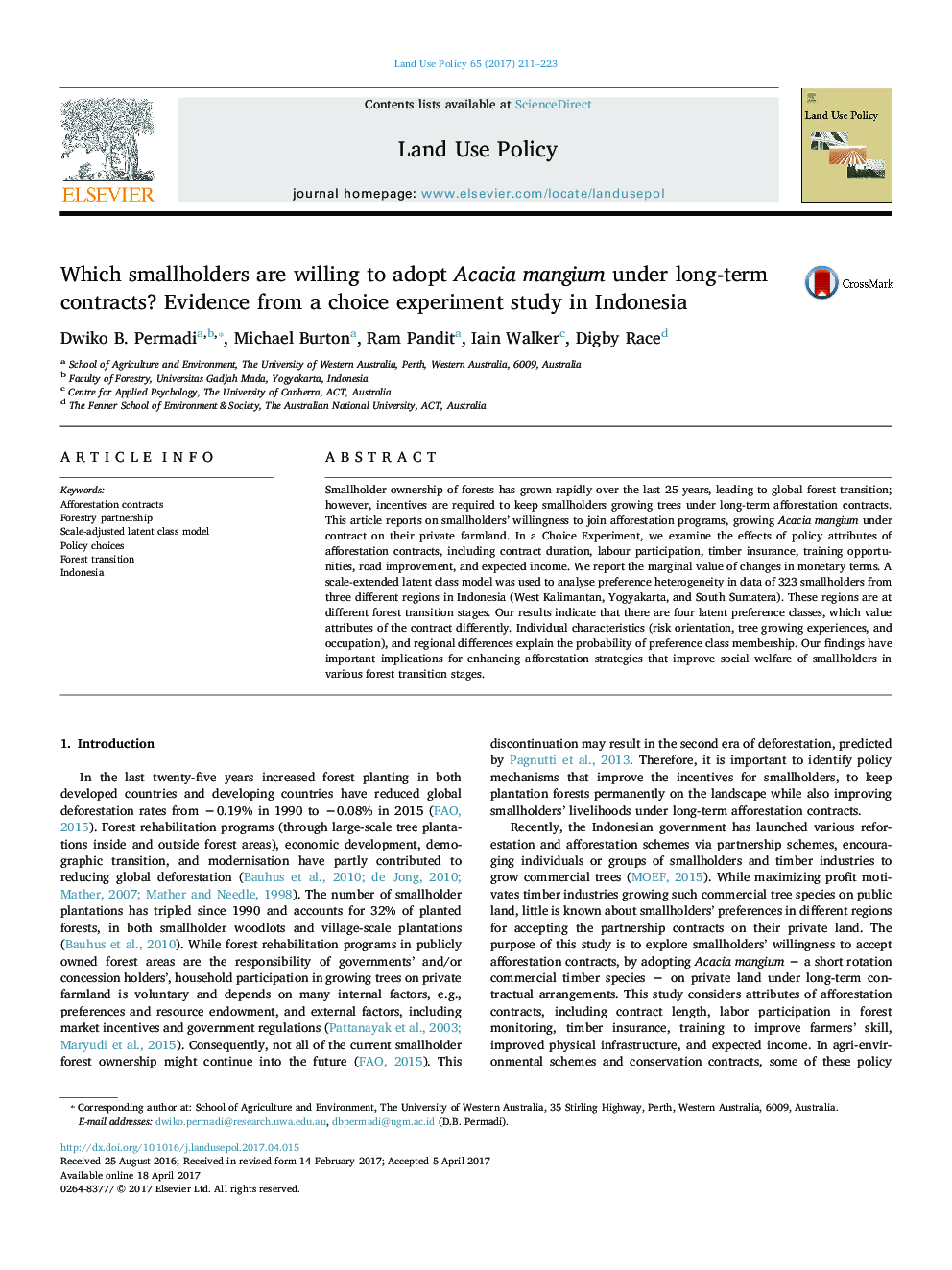| Article ID | Journal | Published Year | Pages | File Type |
|---|---|---|---|---|
| 6461147 | Land Use Policy | 2017 | 13 Pages |
Smallholder ownership of forests has grown rapidly over the last 25 years, leading to global forest transition; however, incentives are required to keep smallholders growing trees under long-term afforestation contracts. This article reports on smallholders' willingness to join afforestation programs, growing Acacia mangium under contract on their private farmland. In a Choice Experiment, we examine the effects of policy attributes of afforestation contracts, including contract duration, labour participation, timber insurance, training opportunities, road improvement, and expected income. We report the marginal value of changes in monetary terms. A scale-extended latent class model was used to analyse preference heterogeneity in data of 323 smallholders from three different regions in Indonesia (West Kalimantan, Yogyakarta, and South Sumatera). These regions are at different forest transition stages. Our results indicate that there are four latent preference classes, which value attributes of the contract differently. Individual characteristics (risk orientation, tree growing experiences, and occupation), and regional differences explain the probability of preference class membership. Our findings have important implications for enhancing afforestation strategies that improve social welfare of smallholders in various forest transition stages.
